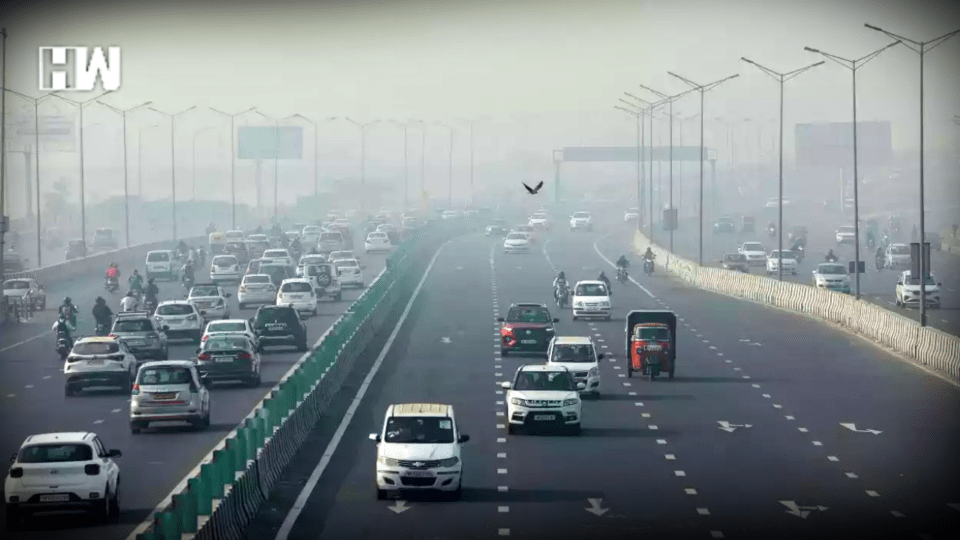With Air Quality in the national capital continuing to remain in the ‘severe’ category for consecutive two days, the SAFAR (System of Air Quality and Weather Forecasting And Research) Friday reveals that the stubble-burning contributed 34 per cent in Delhi’s PM 2.5 pollution.
New Delhi: With Air Quality in the national capital continuing to remain in the ‘severe’ category for consecutive two days, the SAFAR (System of Air Quality and Weather Forecasting And Research) Friday reveals that the stubble-burning contributed 34 per cent in Delhi’s PM 2.5 pollution.
The air quality in Delhi continued to remain in the ‘severe’ category on Friday morning as the overall Air Quality Index (AQI) of the city jumped to 472. Noida, which is part of the national capital region, recorded an AQI of 562, and continued to remain in the ‘severe’ category, while Gurugram’s AQI stood at 539 and continued to remain in the ‘severe’, as per data released by SAFAR (System of Air Quality and Weather Forecasting And Research) India.
Air Quality Index from 0 to 100 is considered as good, while from 100 to 200 it is moderate, from 200 to 300 it is poor, and from 300 to 400 it is said to be very poor and from 400 too 500 or above it is considered as severe.
People of Delhi and the National Capital Region (NCR) on Thursday woke up with complaints of choking and ‘eye burning’ due to smog and air pollution leaving people gasping for breath.
Also Read: 2000 Red Fort incident: SC says incident was direct attack on unity, integrity, sovereignty of India
North Delhi Air Quality recorded the poorest as almost all the stations in the region displayed AQI above 400.
Most of the stations in the capital have an AQI above 300 with the exceptions of a few like Mandir Marg in central Delhi.
However, the forecast predicts that the condition of air quality in Delhi and nearby regions will continue to deteriorate further and expects improvement from November 5.
“Air quality is likely to remain within ‘Severe’ today and likely to improve tomorrow to ‘lower end of Severe’ and from 5th onwards air quality is likely to improve further to ‘Very poor’ due to upper-level wind reversal that prevents inflow of stubble-related pollutants. Higher surface wind speed on 5th Nov is likely to disperse pollutants,” said a press release.
(Except for the headline, this story has not been edited by HW News staff and is published from a syndicated feed.)
As an independent media platform, we do not take advertisements from governments and corporate houses. It is you, our readers, who have supported us on our journey to do honest and unbiased journalism. Please contribute, so that we can continue to do the same in future.

